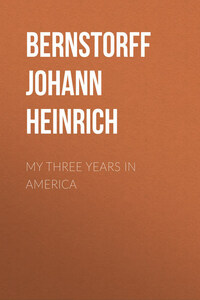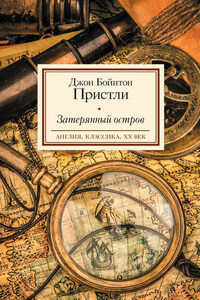INTRODUCTION
MY FUNDAMENTAL POLITICAL VIEWS BEFORE AND DURING THE WAR
It was in my own home, the German Embassy in London, where the atmosphere was entirely political, that I learned my first steps in politics. My father did not belong to that class of diplomats, so prevalent to-day, who treat politics as an occupation to be pursued only in their spare time. His whole life was consecrated to the cause of the German nation, and from my earliest childhood my mind was filled with the same idea, to the exclusion of all others.
Owing to my father's share in the negotiations which brought about the marriage of the Emperor Frederick with the Princess Royal of England, the Imperial couple became closely connected with my parents, and, as Crown Prince and Princess, frequently resided at the Embassy in London. It was the entourage of the Emperor Frederick that first inspired in me those political views, which, during a long diplomatic career, gradually crystallized into the deep-rooted convictions of my political outlook. I believed Germany's salvation to lie in the direction of a liberal development of Unification and Parliamentary Government, as also in an attitude of consistent friendliness towards England and the United States of America. Thus, to use a modern phrase, I was an avowed supporter of the Western Policy. At the present moment, while we are standing as mourners at the grave of our national hopes, I am more than ever convinced, that had this policy been steadily pursued, we should have been spared the catastrophe that has overtaken us.
On the other hand, I will not deny, that even the Oriental Policy would have proved a feasible political scheme, if only we had decided to pursue it in good time. Albeit, I am of opinion that even Bismarck had already started us in the direction of the Western Policy, when in 1879 he decided in favor of Austria-Hungary and not Russia. Despite all that the careworn recluse of Friedrichsruhe may have written against Caprivi's policy, which was decidedly Western in tendency, he was himself the founder of the Triple Alliance, which, without the good-will of England, could not have come into existence. Had we pursued an Eastern Policy, though it would ultimately have led to the sacrifice and partition of Austria-Hungary, it would not have secured us those advantages in the Orient of which Marschall speaks. Nevertheless, I have always regretted that we sent such a first-rate man to Constantinople, for him ultimately to become the able director of the false policy which we pursued there. There is an Oriental proverb which says: "Never lay your load on a dead camel's back."
If, as I always used to hope, we had resolved to adopt the Western Policy, we should in any case have had to be prepared, in certain circumstances, to venture with England's help upon a war against Russia. And the experiences of the Five-Years War have taught us that we should have won such a conflict with ease. I never wanted a war with Russia, and was never an enemy of that country; but I believed that our position among the nations of the world would compel us to decide one way or the other, and I felt, just as Caprivi did, that we should not very well be able to avoid war. Even if, in the event of a war between the Triple Alliance and Russia and France, England had only maintained an attitude of friendly neutrality, this would have proved very much more favorable for us than the situation which developed out of the Encirclement Policy (Einkreisungspolitik). Furthermore, had we pursued the Western Policy, we should have had to reckon with the possibility of England's wishing to moderate, even in a perfectly friendly manner, our somewhat explosive economic development. I should not, however, have regarded this altogether as a disadvantage. For, truth to tell, we grew a little too rapidly. We ought, as "junior partners" in Britain's world-empire, to have gathered our strength more slowly. As an example of what I mean, take the policy which France and Japan have pursued since the beginning of the present century. If we had done the same, we should, at all events, have been saved from so seriously overheating the boilers of our industrial development, we should not have outstripped England as quickly as we undoubtedly could have done if we had been left to develop freely, but we should also have escaped the mortal danger which we drew upon ourselves by provoking universal hostility.
It is impossible now for me to demonstrate retrospectively that we should have been able to conclude an alliance with England. Prince Bülow denies that this was ever the case. Maybe that during his tenure of office this possibility did not offer a sufficient guarantee of future security to warrant our incurring the hostility of Russia. I am convinced, however, that an alliance with England would have been within our power, if we had pursued Caprivi's policy consistently, and the Kruger telegram had never been dispatched. Unfortunately we have always had statesmen at the helm in Germany, – Bismarck not excepted, – the bulk of whose views and knowledge were essentially continental, and who never felt quite at home with English ways of thinking. I feel perfectly satisfied on this point, however, that English commercial jealousy, with which we naturally had to reckon, would not have proved an insuperable obstacle to a good understanding with England, provided that we had declared ourselves ready, if necessary, to fight Russia.








